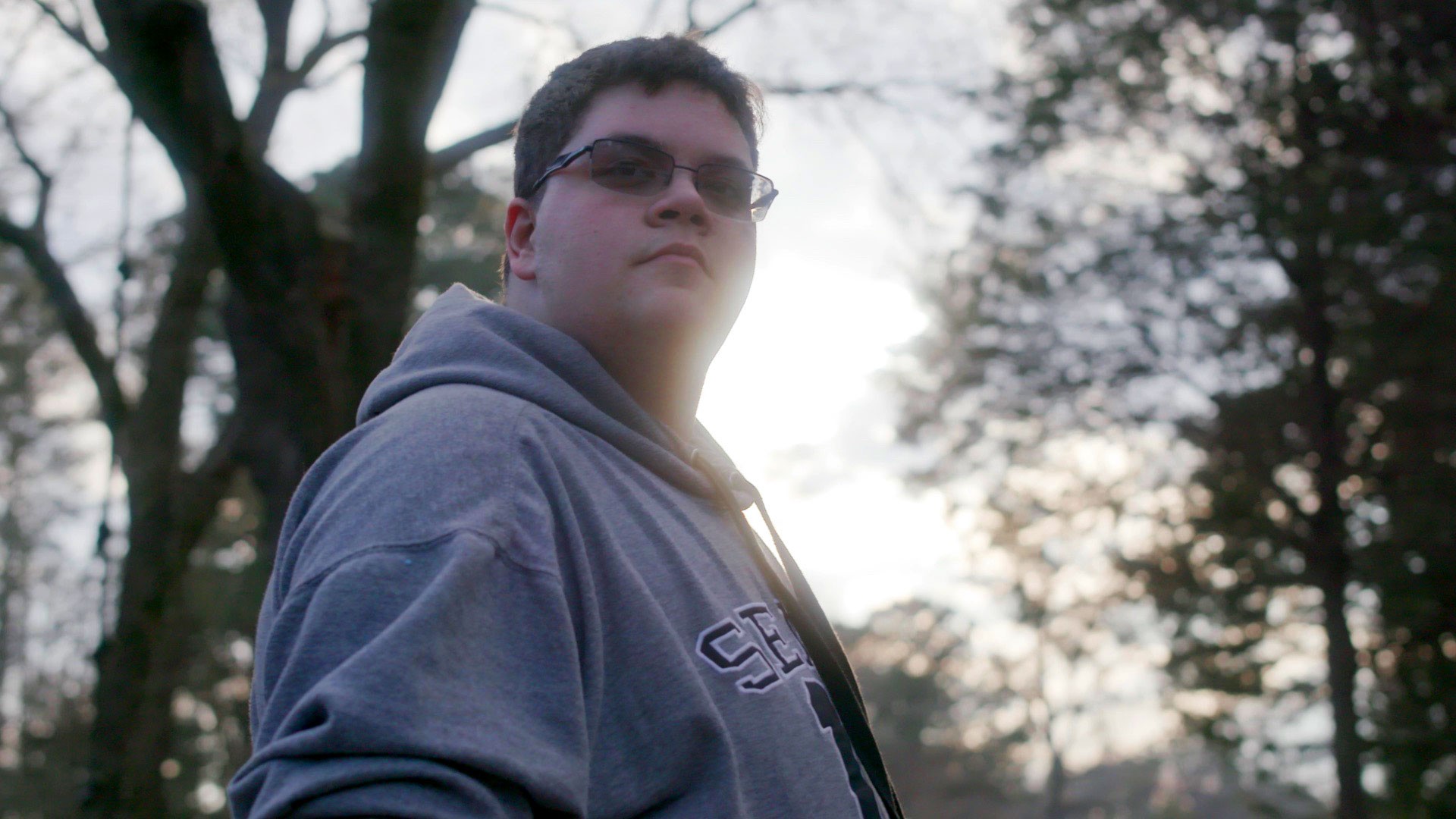Malaysia Walker. Photo courtesy of subject
Following the Supreme Court's decision in Masterpiece Cakeshop v. Colorado Civil Rights Commission, we are taking an in-depth look at how religious freedom is increasingly being distorted and exploited to justify discrimination against LGBT people, women, and others. This six-part series examines the resulting consequences through the firsthand accounts of those who have experienced it. You can read more from the series here.I am a proud and beautiful black woman. I have a husband and a family. I have lived in Mississippi my whole life. I go to church. I love God. And I am also transgender.I grew up in one of the most unsafe neighborhoods in Jackson, during the height of gang violence, guns, and drugs. I always knew I was different from the other kids, so my adolescence wasn’t easy. I learned very early on about the pain of being bullied. It started on the playground with name-calling and taunts, then escalated to getting pushed around and humiliated, being called names like “faggot” and “sissy.”For so many trans people, the bullying doesn’t stop at the playground: I’ve been bullied my entire life, to this day, at 39 years old. I used to work in the retail beauty industry. I was told that I was talented, I had coworkers who were like family, and I loved my work. But after I began transitioning, my employer refused to let me exist at work like all my other female colleagues. In addition to being told I wasn’t allowed to use the women’s restroom, I was never treated with the respect and professionalism that all women in the workplace deserve.But I needed the job. I needed a paycheck, and to get by in life. While I remained employed there, I was constantly passed over for promotions—four times, to be exact. Despite being the most qualified candidate for the open positions, I was always told that management had “decided to go with someone else.” The final time I was passed over, my cousin received the promotion. She told me that I did not get the job because I was transgender.
Watch: Gavin Grimm: The Student at the Heart of the Trans Civil Rights Movement On October 10, 2017, an anti-LGBTQ law went into effect in Mississippi. The law—HB 1523, or the “Religious Liberty Accommodations Act”—allows businesses, individuals, government employees, and organizations to discriminate against LGBTQ people if they claim such discrimination is motivated by their religious beliefs or moral convictions. For example, this law would authorize a nursing home to refuse to care for a transgender person.Freedom of religion is so important for all of us, and God is a huge part of my life, but using religion to discriminate against others harms all of us in the most detrimental ways. HB 1523 says it’s permissible to refuse service to trans people in public accommodations, to deny trans people access to housing and health care, and even to bar trans people from employment.The Mississippi bill is unconscionable, but it’s not an isolated event—it’s part of a broader national strategy. In January, the Trump administration announced they had created a “Conscience and Religious Freedom Division” of the Department of Health and Human Services. Its sole purpose is to shield healthcare providers from any consequences if they discriminate against their patients for religious reasons; for trans people, this is particularly worrying because while faith communities are increasingly supportive of transgender rights, too many faith-based groups specifically target transgender patients, saying they should have the right to refuse us care because they don’t acknowledge the reality of transgender lives.
On October 10, 2017, an anti-LGBTQ law went into effect in Mississippi. The law—HB 1523, or the “Religious Liberty Accommodations Act”—allows businesses, individuals, government employees, and organizations to discriminate against LGBTQ people if they claim such discrimination is motivated by their religious beliefs or moral convictions. For example, this law would authorize a nursing home to refuse to care for a transgender person.Freedom of religion is so important for all of us, and God is a huge part of my life, but using religion to discriminate against others harms all of us in the most detrimental ways. HB 1523 says it’s permissible to refuse service to trans people in public accommodations, to deny trans people access to housing and health care, and even to bar trans people from employment.The Mississippi bill is unconscionable, but it’s not an isolated event—it’s part of a broader national strategy. In January, the Trump administration announced they had created a “Conscience and Religious Freedom Division” of the Department of Health and Human Services. Its sole purpose is to shield healthcare providers from any consequences if they discriminate against their patients for religious reasons; for trans people, this is particularly worrying because while faith communities are increasingly supportive of transgender rights, too many faith-based groups specifically target transgender patients, saying they should have the right to refuse us care because they don’t acknowledge the reality of transgender lives. The message sent to the country is unmistakable. It’s the same message that has led to increased violence against trans people: that trans people are disposable, and trans bodies are disposable.All of us need and should have a right to medical care, regardless of who we are or our gender identity.Things are tough here in Mississippi, especially for those of us who are deemed to be different. I’ve spent my whole life here, and despite the difficulties, this state is my home. It’s a part of me. I am committed to fighting discrimination with everything I have, on behalf of all of the people who live here. That work starts with talking about our issues and, for me, educating others about what it means to be transgender.We all belong here. We all deserve the same protections and rights: to live safely and in peace. We are now at a moment where we must find ways to all live together, pray together, work together, and be together—without fear of each other.
The message sent to the country is unmistakable. It’s the same message that has led to increased violence against trans people: that trans people are disposable, and trans bodies are disposable.All of us need and should have a right to medical care, regardless of who we are or our gender identity.Things are tough here in Mississippi, especially for those of us who are deemed to be different. I’ve spent my whole life here, and despite the difficulties, this state is my home. It’s a part of me. I am committed to fighting discrimination with everything I have, on behalf of all of the people who live here. That work starts with talking about our issues and, for me, educating others about what it means to be transgender.We all belong here. We all deserve the same protections and rights: to live safely and in peace. We are now at a moment where we must find ways to all live together, pray together, work together, and be together—without fear of each other.
Advertisement
Advertisement
Watch: Gavin Grimm: The Student at the Heart of the Trans Civil Rights Movement

Advertisement
